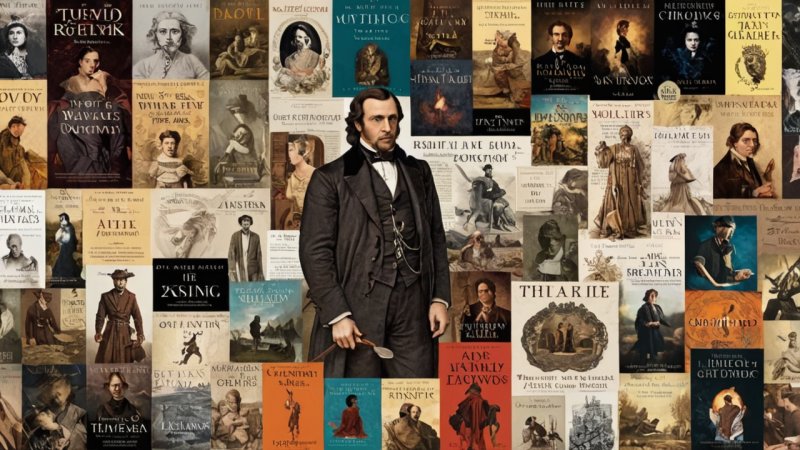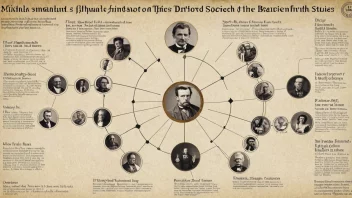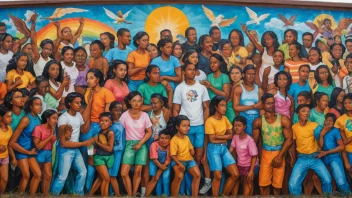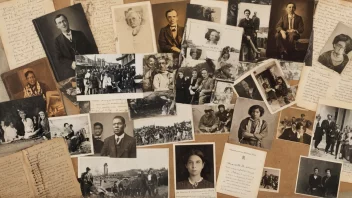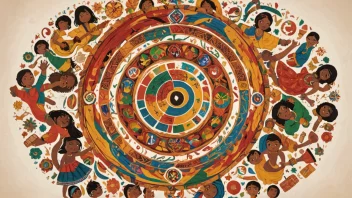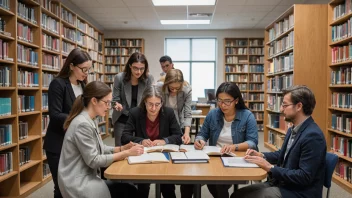The relationship between history and fiction is a complex and fascinating one, often blurring the lines between fact and imagination. While history seeks to document and understand the past through evidence and scholarly research, fiction allows for a creative interpretation of events, characters, and cultures, bringing to life the nuances of human experience. This interplay offers a rich tapestry for both writers and historians, enabling them to explore themes of identity, morality, and the human condition. In this article, we will delve into how historical narratives have influenced fictional works, the role of historical accuracy in literature, and the impact of fiction on our understanding of historical events.
The Influence of History on Fiction
Fiction often draws inspiration from historical events, using them as a backdrop for storytelling. Authors like Hilary Mantel and Ken Follett have crafted narratives that not only entertain but also educate readers about significant periods in history. For instance, Mantel's acclaimed series, "Wolf Hall," provides a deep dive into the life of Thomas Cromwell during the Tudor period, blending meticulous research with imaginative storytelling. Through such works, readers gain insight into the socio-political climate of the era, as well as the intricate human relationships that shaped historical outcomes.
Moreover, the portrayal of historical events in fiction can shape public perception and understanding. When a novel captures the essence of a particular time, it can influence how people view that period, sometimes even more than academic texts. This phenomenon highlights the power of narrative in shaping collective memory and cultural identity.
Historical Accuracy in Literature
One of the ongoing debates in the realm of historical fiction is the balance between accuracy and artistic license. Many authors strive for authenticity, meticulously researching the time periods they depict. However, the necessity of creating compelling narratives can lead to embellishments or alterations of facts. Readers may find themselves questioning the reliability of what they read, especially when fictionalized accounts diverge significantly from established historical records.
To navigate this complexity, some authors include author's notes or bibliographies to clarify which elements of their stories are based on fact and which are products of imagination. This transparency can help readers appreciate the creative process while also encouraging them to seek out the original historical sources for a deeper understanding.
The Impact of Fiction on Historical Understanding
Fiction has the power to evoke empathy and understanding in ways that traditional historical texts may not. By immersing readers in the lives of characters who experience historical events, fiction can humanize the past and make it more relatable. Novels like "The Book Thief" by Markus Zusak illustrate this effect by presenting the horrors of World War II through the eyes of a young girl, allowing readers to connect emotionally with the historical context.
Furthermore, fiction can challenge dominant narratives and provide alternative perspectives on history. Works that highlight marginalized voices—such as those of women, minorities, or the working class—can enrich our understanding of the past and prompt discussions about whose stories are told and valued. This is particularly important in a world where history is often written by the victors, and many experiences remain overlooked.
The Role of Historical Fiction in Education
In educational settings, historical fiction can serve as a powerful tool for engaging students with the past. By incorporating novels and stories into the curriculum, educators can spark interest and encourage critical thinking. Students may find it easier to relate to historical figures and events when presented through the lens of fiction, making the learning experience more dynamic and memorable.
Additionally, historical fiction can prompt discussions about the ethical implications of historical events, encouraging students to grapple with complex moral questions. For example, novels that explore themes of war, colonization, or social justice can lead to meaningful conversations about justice, responsibility, and the impact of choices made in the past.
Conclusion
The interplay between history and fiction is a testament to the richness of human storytelling. While history provides the framework of facts and evidence, fiction adds layers of meaning, emotion, and imagination. Together, they create a more nuanced understanding of the past, allowing us to explore not only what happened but also why it matters. As readers, writers, and scholars, we must navigate this landscape with curiosity and critical thinking, appreciating the contributions of both disciplines to our comprehension of the human experience.
